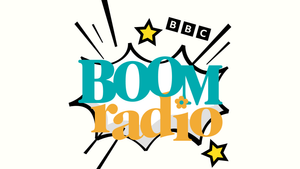Boom Radio has welcomed a provisional ruling from UK media regulator OfCom that the BBC should not be allowed to launch a new golden oldies radio station that would utilise the Radio 2 brand.
The proposed new music service, OfCom says, would likely have a negative impact on commercial broadcasters operating similar services, especially Boom Radio, and that impact is not justified by any public value that the BBC golden oldies station might deliver.
Management at the independently owned Boom Radio, which plays music from the 1950s, 1960s and 1970s, say they are “highly delighted” about OfCom’s ruling. “The last few months have been very uncertain for us”, they say in a message to their listeners, adding that “whilst we kept cheery on-air”, formally opposing the BBC’s plans to launch a rival service “was a huge distraction behind the scenes”.
The BBC announced plans in February 2024 to launch four new stations on the DAB digital radio network. Two would be decade focused, with a Radio 1 spin off playing music from the 2000s and 2010s, and the Radio 2 spin off that would play music from the 1950s, 1960s and 1970s.
BBC bosses insisted that the proposed new services would allow the licence fee funded broadcaster to offer more choice, "especially to those who currently are underserved by the BBC".
In its ruling yesterday, OfCom explains how, because of the way the BBC is regulated, if the broadcaster makes ‘material’ changes to its output both it and the regulator need to consider the effect those changes will have on competition in the wider media marketplace.
These proposed changes were material, OfCom adds, and also “raised several contentious issues”, prompting it to undertake “full competition assessments”.
The commercial radio sector was critical of all four proposed stations, arguing that the BBC was basically replicating what the commercial sector is already doing rather than providing the kind of unique public service content that the licence fee is meant to fund.
However, the Radio 2 golden oldies station proved most controversial from the start, especially once Boom Radio started encouraging its listeners to join its protest against the plans. So much so, last November OfCom told the BBC that it couldn’t even launch the Radio 2 spin-off within the BBC Sounds app.
It’s generally easier for the BBC to launch new online-only services. One of the proposed new DAB stations was already available on BBC Sounds, and the plan was to add the other three while the DAB proposals were reviewed. But OfCom said that, for the golden oldies service, a fuller review was required even to add it to BBC Sounds.
With the full competition assessments now complete, the other three new DAB services proposed by the BBC have been given the go ahead by OfCom, but not the Radio 2 spin off.
Because, not only would that service have a negative impact on the likes of Boom Radio, but also - says OfCom - it could “deter entry and reduce investment incentives for commercial radio operators more generally, especially for independent radio stations and those that intend to serve audiences that the BBC has moved away from”.
“We think that this would create a significant adverse impact on fair and effective competition which would not be justified by the public value of the proposal”, OfCom concludes, and therefore plans for the new Radio 2 station should not proceed.
In its statement, Boom Radio is keen to stress that it is not anti-competition more generally, pointing out that other commercial rivals have launched since it first went on air.
But, it adds, a licence-fee funded service “with unique advantages using the BBC’s transmission network” and “backed by unrivalled marketing exposure on the huge Radio 2”, and without the need to carry ads, “is unfair competition - that is why there is legislation to govern it”.
It goes on, “We appreciate that there are those who might have liked the new BBC station, but OfCom recognised that the BBC walked away from older audiences, clearing a gap which we set out to address”. For the BBC to now try and compete in that gap by exploiting its existing brand and reach “would have been simply unfair”.
Interested parties can respond to OfCom’s provisional ruling by 14 May, with a final decision to be made by 4 Jul at the latest.

